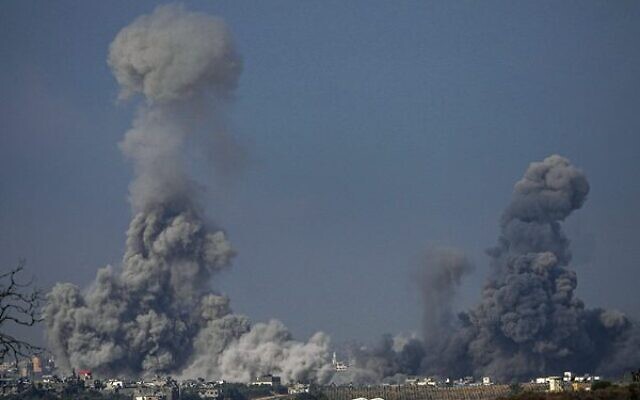Complexity of war crimes definition
Israel's response is very different to the very clear crimes committed by Hamas and doesn't meet the legal definition of genocide.
Israel absolutely cannot be accused of “committing genocide” in Gaza.
That’s according to Dr Deborah Mayersen, a genocide studies scholar and senior lecturer at the University of New South Wales in Canberra at the Australian Defence Force Academy.
She says genocide has a very specific legal definition involving the intent to destroy a population in whole or in part.
“It’s inappropriate to be considering that term with respect to Israel’s response to [Hamas’s] infamous attack on Israel,” she said.
Mayersen said there have been many incidents of genocide in the past century; the Armenian Genocide, the Holocaust, and the genocide in Rwanda, for example.
But she said Israel’s response is very different to the very clear crimes committed by Hamas and doesn’t meet the legal definition of genocide.
“What we see here is a very clear case that Hamas has perpetrated war crimes against Israel. And Israel has responded to that with using its legitimate right of self-defence.
“I have not seen any evidence of Israel committing war crimes,” she said.
Mayersen says what constitutes a war crime is a more complex question involving the legal definition of what constitutes proportionality.
“When responding to an attack, you have to make a proportional response to that, so you cannot have a response that might be excessive … you can only attack military targets, but sometimes those attacks will cause incidental loss of civilian life,” she said.
However, Mayersen said making that determination requires both an element of subjectivity and also requires data.
“And at this point it’s very hard to get any reliable data out of the Gaza Strip,” she said.
Mayersen believes many people are seeing events in Israel and Gaza in a very subjective way.
“And that can lead to people making decisions around that and accusations around that which aren’t backed by solid data, or objective criteria,” she said.
The academic said there has been a huge variety in the way the news media has handled questions of genocide and war crimes, but it is important the media quickly presents the most reliable and up to date information.
“Last week, for example, with the Gaza hospital incident, we saw the media being very slow to update that information as facts came in.
“And I think that’s very disappointing that we were not seeing the media focus on speed and accuracy of information provision, to the extent that we would like.”


comments